- Overview
- Specializations
- Online Adult Gerontology – Primary Care Nurse Practitioner (AGPCNP) Program
- Adult Gerontology Acute Care Nurse Practitioner (AGACNP)
- Online Pediatric Nurse Practitioner (PNP) Program
- Online Family Nurse Practitioner (FNP)
- Online Psychiatric Mental Health Nurse Practitioner Program (PMHNP)
- Online Women’s Health Nurse Practitioner Program (WHNP)
- Program Details
- Careers
- Curriculum
- Admission Requirements
- University Details
- Faculty
- FAQs
- Resources
- Tuition and Fees
Adult Gerontology Acute Care Nurse Practitioner (AGACNP)
Overview
Acute care nurse practitioners (ACNPs) care for patients struggling with acute, chronic, or critical conditions, while primary care nurse practitioners (PCNPs) provide comprehensive care to support their patients’ daily health.
The online Master of Science in Nursing (MSN) in Adult Gerontology – Acute Care at Regis College prepares associate- and bachelor’s-credentialed nurses to provide advanced care to patients, from adolescents to adults, facing serious threats to their health.
With the number of Americans over 65 expected to reach 73 million by 2030, representing nearly 25% of the population, demand for adult gerontology – acute care nurse practitioners (AGACNPs) will remain strong.* AGACNPs can also play a critical role serving on the front line during an epidemic or a pandemic, helping to diagnose and treat medical conditions. Nurses are in short supply and high demand, and Regis is more committed than ever to help fill that void.
What can you do with an adult gerontology – acute care nursing degree?
Adult gerontology – acute care nurse practitioners diagnose and treat acute medical conditions for a wide range of patients, from adolescents to adults, sometimes in collaboration with other medical professionals. They may also continue to monitor patients as they move into an outpatient facility or return home to ensure a successful transition and complete resolution of their needs.
Where do adult gerontology – acute care nurse practitioners work?
Like many other medical professionals, AGACNPs can work in various medical facilities, including hospitals, private practices, community health clinics, and nursing homes.
Calendar
Credits: 39-63
Courses: 19
Duration: 26-38 months
Application Deadline:
December 8, 2025
Upcoming Start Date:
January 5, 2026
Why Choose Regis for Your Online MSN in AGACNP?





A Virtual Extension of Our Highly Regarded On-campus Program
The online Master of Science in Nursing (MSN) is a virtual extension of our highly regarded and longstanding on-campus program. Maintaining the mission of Regis, our online MSN program resonates with and empowers those who seek to serve at their highest capacity to care for and comfort patients.
Our esteemed faculty consists of active nursing professionals, which means our programs provide insider perspectives on the leadership qualities the nursing field demands. With our online MSN, you can develop important leadership skills such as critical thinking, professional and interpersonal communication, effective decision-making, patience, and more.
Benefits of an Adult Gerontology – Acute Care Nurse Practitioner Program
Earning an MSN degree with an AGACNP concentration can prepare you to enter a field filled with opportunity. Increased demand for health care and a growing shortage of nurses translates to more job opportunities and higher pay.
The program also helps students cultivate advanced health care expertise and enhance their skill set, preparing them to become trusted leaders who can guide others as the industry evolves.
Additionally, our fully online program provides you with the flexibility to advance your nursing education while balancing work and personal commitments — a significant advantage for busy learners.
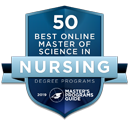

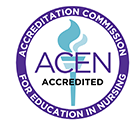

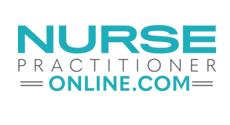
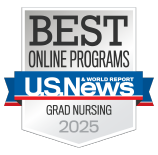
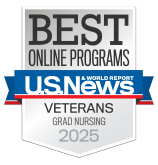
What Can You Do with an Adult Gerontology – Acute Care Nurse Practitioner Degree?
Baby boomers are one of the largest populations in the United States, representing nearly 25% of the U.S. population as of 2020. As they continue to age, the nation will need more medical professionals skilled at diagnosing and treating their medical needs. AGACNPs perform a variety of tasks, including:
- Providing long-term evaluation/management of patients with acute and chronic health care problems, both within and outside the hospital setting
- Writing prescriptions for acutely and chronically ill patients**
- Assessing patient responses to drugs and other ancillary treatments
- Creating effective care plans based on relevant data and test results
Where Do Adult Gerontology – Acute Care Nurse Practitioners Work?
Adult gerontology – acute care nurse practitioners can work in a variety of settings, providing advanced care to adults experiencing urgent health threats and chronic or episodic illnesses. Medical facilities that employ AGACNPs include:
- Cardiac care units
- Emergency rooms
- Intensive care units
- Nursing schools
- Private practice
- Specialized clinics
- Acute and subacute care units
- Trauma units
What Is the Typical AGACNP Salary?
Adult Gerontology – Acute Care Nurse Practitioner Job Outlook
Adult Gerontology – Acute Care Nurse Practitioner Careers
Improve health outcomes for adult patients facing serious threats to their health.
Adult gerontology – acute care nurse practitioners (AGACNPs) are committed to delivering optimal care to patients ranging from adolescents to seniors who are ‘physiologically unstable, technologically dependent and/or are highly vulnerable to complications. The AGACNP is qualified to make sudden, life-altering decisions that are in the best interest of patients, making it a challenging, yet rewarding, career path.
While most AGACNPs report practicing in tertiary care settings such as hospital emergency rooms and critical care units, they can now work in specialty clinics and long-term care facilities. The AGACNP role also extends beyond clinical practice, including elements of administration education and research.
AGACNPs are in demand.
The American Association of Nurse Practitioners (AANP) reports that as of May 2021, there were 325,000 licensed nurse practitioners in the U.S., however only an estimated 2.9% of NPs are educated and certified as AGACNPs.
The National Center for Workforce Analysis (NCHWA) reported an estimated 20,000 primary care physician shortfall by 2025. In light of the growing shortage of physicians across the country and as a large population of baby boomers age, adult gerontology acute care nurse practitioners (AGACNPs) are essential to filling a vital role in today’s acute care landscape.
Able to deliver acute and care services to a wide range of patients, AGACNPs will continue to be in high demand – particularly throughout the pandemic, as they are well-equipped to diagnose and treat sudden and serious threats facing a patient’s health.

AGACNP responsibilities include:
- Long-term evaluation/management of patients with acute and chronic health care problems
- Operating life support systems
- Ordering and interpreting diagnostic tests
- Prescribing medication for acutely and chronically ill patients*
- Patient and family counseling
- Assessing patient responses to drugs and other ancillary treatments
- Creating effective care plans based on all relevant data and test results
- Serving as a patient advocate
- Providing intensive therapy
Common practice settings include:
- Emergency rooms
- Trauma centers
- Surgical units
- Intensive care unit hospital settings
- Urgent care centers
- Ambulatory or outpatient care facilities
- Rehabilitative care units
- Hospice or palliative care services
- Community-based environments
Did You Know?*
- The top clinical focus areas of NPs certified in adult-gerontology acute care are critical care, cardiovascular and hospitalist.
- The top practice settings of NPs certified in adult-gerontology acute care are hospital inpatient units and hospital outpatient clinics.
- The top diagnoses treated by AGACNPs are hypertension, heart failure, and diabetes.
*AANP
Ready for Your Next Step?
Adult Gerontology - Acute Care Nurse Practitioner Curriculum
We’re here to support you. With several modes of student support, no GRE requirements, and a flexible learning environment, we’re breaking down barriers that often prevent bright minds from reaching their full potential. Our inclusive approach to nursing leadership starts with three entry points:
- Associate Degree in Nursing to MSN
- Non-Nursing Bachelor’s to MSN
- Bachelor of Science in Nursing to MSN
Our core MSN coursework covers foundational advanced nursing topics that provide students the expertise to become trusted leaders in the field. Topics include nursing theory, concepts in nurse leadership, evidence-based practice, and health policy.
Additionally, students enrolled in the AGACNP program will take courses designed to provide them with a deeper understanding of topics pertaining to adult gerontology acute care. These courses include:
- Acute and Critical Care Pharmacology
- Clinical Concentration Course: Acute and Critical Care of the Adult-Gerontology Client
- Clinical Concentration Seminar: Acute and Critical Care of the Adult-Gerontology Client (provides 300 clinical hours)
Experience an Expertly Crafted Curriculum Taught by Our Supportive Faculty.
Associate Degree in Nursing to MSN
- Associate Degree in Nursing from a regionally accredited institution and accredited nursing program
- Must complete a college-level statistics course prior to the start of classes
- Active unencumbered RN license
- General education courses may be required, depending on your prior undergraduate coursework
Non-Nursing Bachelor’s to MSN
- Bachelor’s degree from a regionally accredited institution of higher education
- Must complete a college-level statistics course prior to the start of classes
- Active unencumbered RN license
- Associate Degree in Nursing (ADN) required.
- Active Registered Nurse (RN) license required.
- General education courses are not required due to prior bachelor’s degree.
Bachelor of Science in Nursing to MSN
- Bachelor’s degree in nursing from a regionally accredited institution and accredited nursing program
- Must complete a college-level statistics course prior to the start of classes
- Active unencumbered RN license
Core MSN Courses Include:
Adult Gerontology - Acute Care (AGACNP)
Admission Requirements
Registered Nurse with Associate Degree Entry or Registered Nurse with Non-Nursing Bachelor’s Degree Entry:
- An Associate Degree in Nursing or a non-nursing bachelor’s degree from a regionally accredited institution of higher education
- Minimum 3.0 cumulative GPA preferred
- Active unencumbered RN license
- Complete 15 bridge credit hours with a B or better
- Must complete a college-level statistics course prior to the start of classes
- For RNs with an Associate Degree in Nursing, general education courses may be required, depending on your prior undergraduate coursework
- One year of critical care work experience (for AGACNP program only)
Registered Nurse with Bachelor of Science in Nursing Degree Entry:
- A Bachelor of Science in Nursing degree from a regionally accredited institution and accredited program
- Minimum 3.0 cumulative GPA preferred
- Active unencumbered RN license
- Must complete a college-level statistics course prior to the start of classes
- One year of critical care work experience (for AGACNP program only)
AGACNP Application Requirements
You can begin your application process today. To get started you will need to submit the following:
- Application form
- Official transcripts from all post-secondary institutions
- Proof of active unencumbered RN license
- Current resume
- Statement of purpose
- Two letters of recommendation
About Regis

Meet Our Faculty
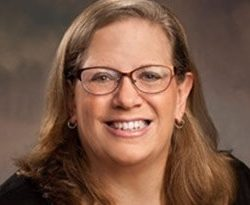
Michele Pedulla, DNP, APRN, CPNP-PC, CNE

Dr. Terrence Taylor, DNP, ACNP-BC
Frequently Asked Questions
Regis is a leading Catholic university in Greater Boston that has been preparing students for success in an evolving, global world since 1927. Our distinguished and personable faculty prepare nurses with a values-based education integrated with cutting-edge technology and industry-focused curriculum in a wide variety of high-demand and niche specializations.
With a focus on holistic patient-centered care, our online MSN program incorporates insider perspectives on the leadership qualities the field demands to help you build the skills you’ll need to positively affect the field.
NPs have greater control over their professional practice and patient outcomes and may benefit from competitive salaries. Many NPs practice independently in some states with prescriptive authority and are being granted more autonomy nationwide.
Additionally, the health care industry is facing a nationwide shortage of physicians and a rising need for acute care, particularly throughout the pandemic. Preparing to become an NP helps nurses hone their skills to deliver the best patient care and outcomes in an industry that continually emphasizes the need to attain ongoing and advanced education.
The program allows three points of entry, providing flexibility to our students:
- RN with Associate Degree (ADN to MSN)
- RN with Non-Nursing Bachelor’s Degree (Bachelor’s to MSN)
- RN with Bachelor of Science in Nursing Degree (BSN to MSN)
Depending on your entry point, you may complete your online MSN degree in as few as:
36 months – RN with Associate Degree (ADN to MSN)
36 months – RN with Non-Nursing Bachelor’s Degree (Bachelor’s to MSN)
28 months – RN with Bachelor of Science in Nursing Degree (BSN to MSN)
*Final curriculum will be decided on individual basis, including potential transfer credits
Depending on your entry point and chosen specialization, the number of credits earned through the online MSN degree may vary:
RN with Associate Degree (ADN to MSN): 61 credits/PMHNP 64 credits
RN with Non-Nursing Bachelor’s Degree (Bachelor’s to MSN): 61 credits/PMHNP 64 credits
RN with Bachelor of Science in Nursing Degree (BSN to MSN): 46 credits/PMHNP 49 credits
Cost Per Credit Hour:
- $1025 per credit hour
Application fee: $75
More information about online graduate nursing program tuition and fees, financial aid, payment options, etc., can be found here.
Yes. You may be eligible to transfer up to 9 graduate credits from a regionally accredited institution and accredited program. Three credits each, final grade of a B- or better. Have more questions? Speak with an admissions advisor to learn more.
*Conditions may apply
The online MSN student will typically complete between 664 and 724 hours of clinical practice, depending on your entry point.
Students have an option to space out clinical hours over 2-4 semesters, with approval from the program director.
Regis is proud to offer a 10% tuition discount on fully online programs for employees, members, and spouses of employees of our partner organizations.*
Regis College aims to help military, veterans, and their families to further their education. This is why we offer a 15% tuition discount to all active and reserve military, veterans, and military spouses for our online programs.
We’re also pleased to offer 15% off tuition on online programs to all federal government employees, and their spouses, working in any federal department.
A 10% Alumni discount is available to anyone who has graduated from Regis with a degree, excluding those who only received a certificate from Regis.
Two levels of graduate assistantships are offered at Regis, giving students the unique experience of gaining valuable professional skills while benefiting from financial aid opportunities.**
*Some exceptions apply. The Regis partnership discount cannot be combined with any other discount or scholarship offered by Regis.
**Graduate Assistantships are available to graduate students who are enrolled in a minimum of six credits within their graduate program and maintain a 3.0 GPA.
Adult Gerontology - Acute Care Nurse Practitioner Resources

How to Develop and Maintain Social Justice in Nursing
Social justice guides the creation of “social institutions” and the individuals who collaborate with these institutions, according to the Center for Economic and Social Justice.

MSN vs. RN: Similarities and Differences Between MSN and RN Degrees
Both RNs and nurses with an MSN degree work closely with patients, helping to treat illnesses and monitoring health.

The MSN Degree Definition
Hospitals and health care employers are looking for well-educated and qualified nurse professionals to care for patients.

The Importance of Teamwork and Collaboration in Nursing
Nurses must communicate with relevant professionals about their patients’ treatment plan while also understanding the role of each assigned team member.

What Is the Importance of Evidence-Based Practice in Nursing?
EBP enables nurses to make data-backed solutions that incorporate clinical expertise and current research into the decision-making process.

BSN or MSN: Which Is Right for Me?
The nursing discipline features a full range of educational options, including baccalaureate, graduate, and terminal degrees.
Tuition and Fees
$1025
Per credit hour
$100-$300
Estimated cost of textbooks per course
Ways to Save on Your AGACNP Tuition

Regis partner employees can receive a discount on their tuition. Find out if your employer is a partner.

Federal government employees as well as active and reserve military and veterans are eligible for a 15% discount on tuition. Find out more.

Regis alumni who have received a previous degree from Regis are eligible for a 10% discount on tuition. Speak to an advisor for more information.

We are here to support you through the process. Speak to an advisor to learn more.

Earn financial aid helping fellow students while also gaining valuable professional skills. Get more details.
Related Programs

Pediatric Nurse Practitioner

Family Nurse Practitioner

Online BSN to Doctor of Nursing Practice

Adult Gerontology – Primary Care Nurse Practitioner

Psychiatric Mental Health Nurse Practitioner

Women’s Health Nurse Practitioner
